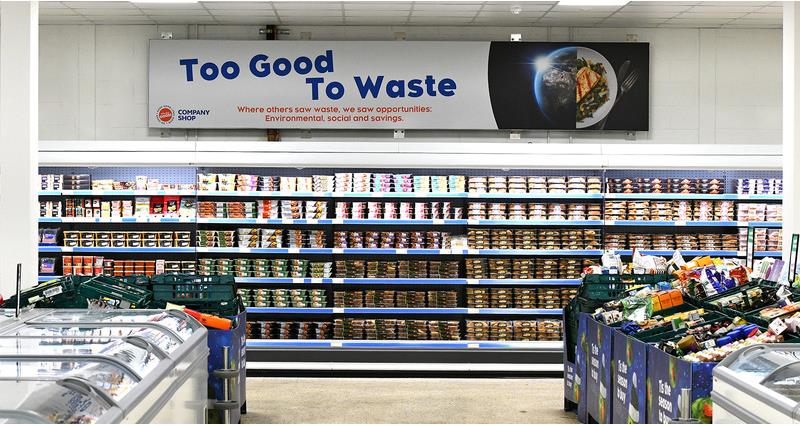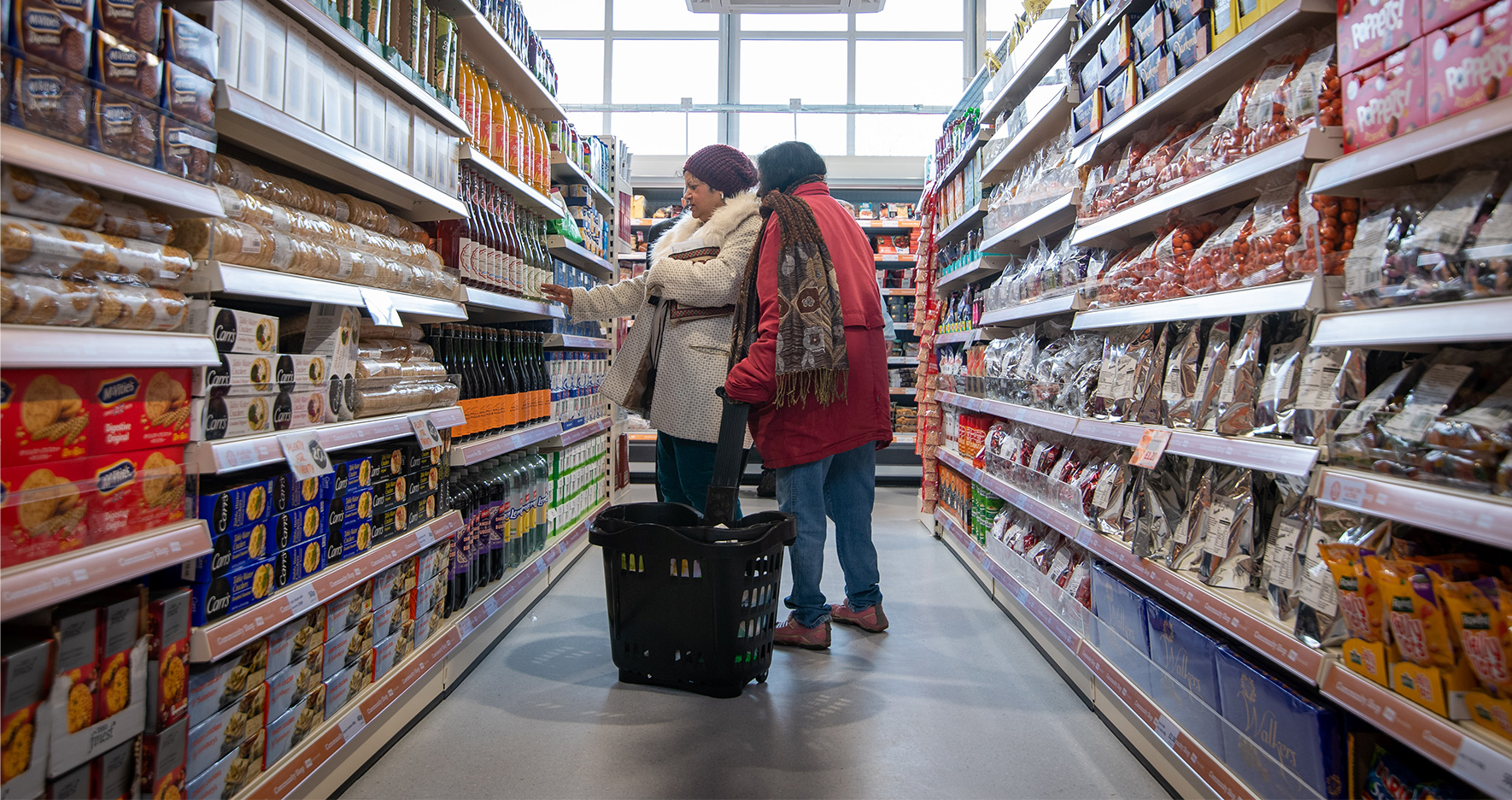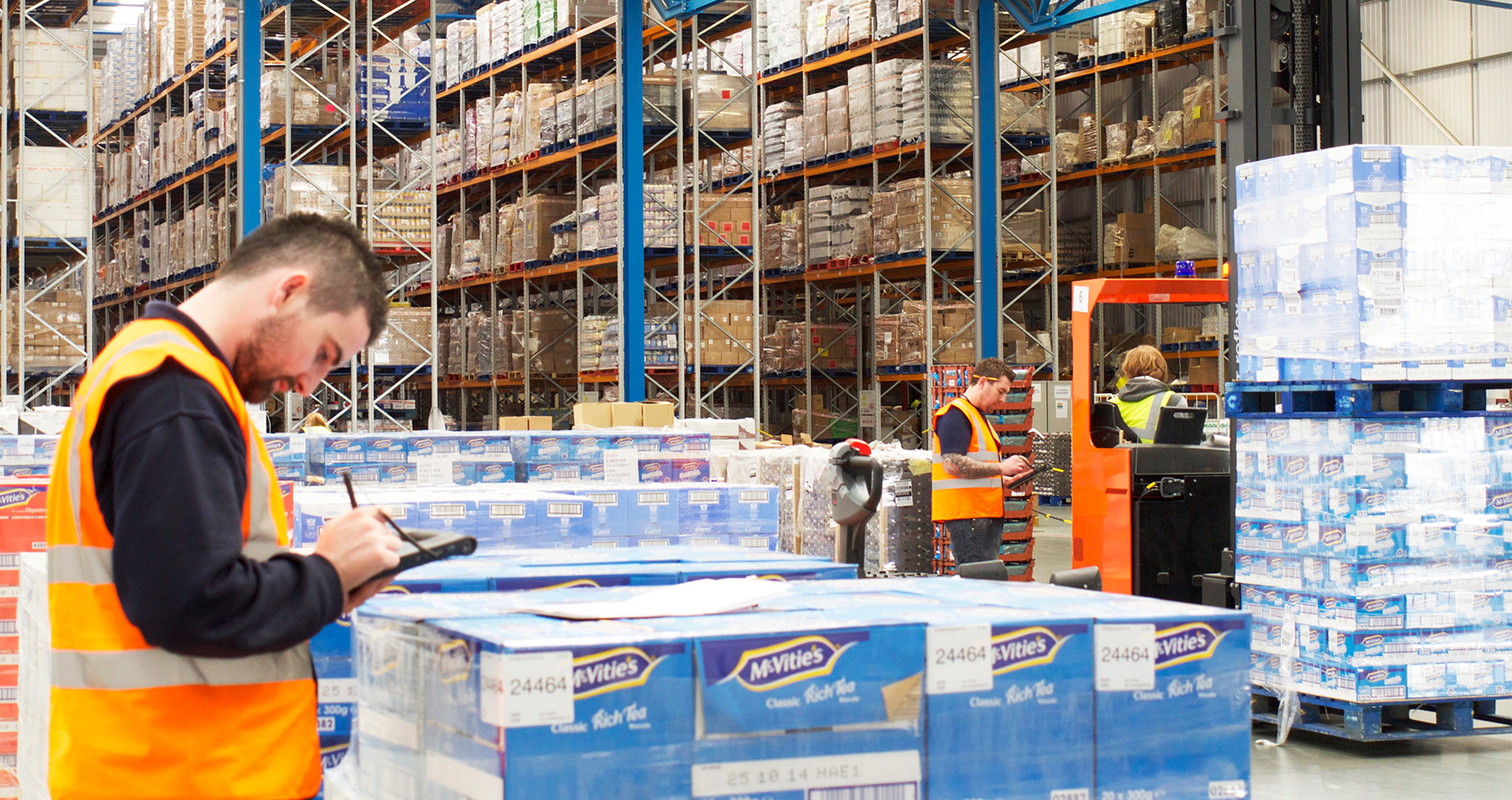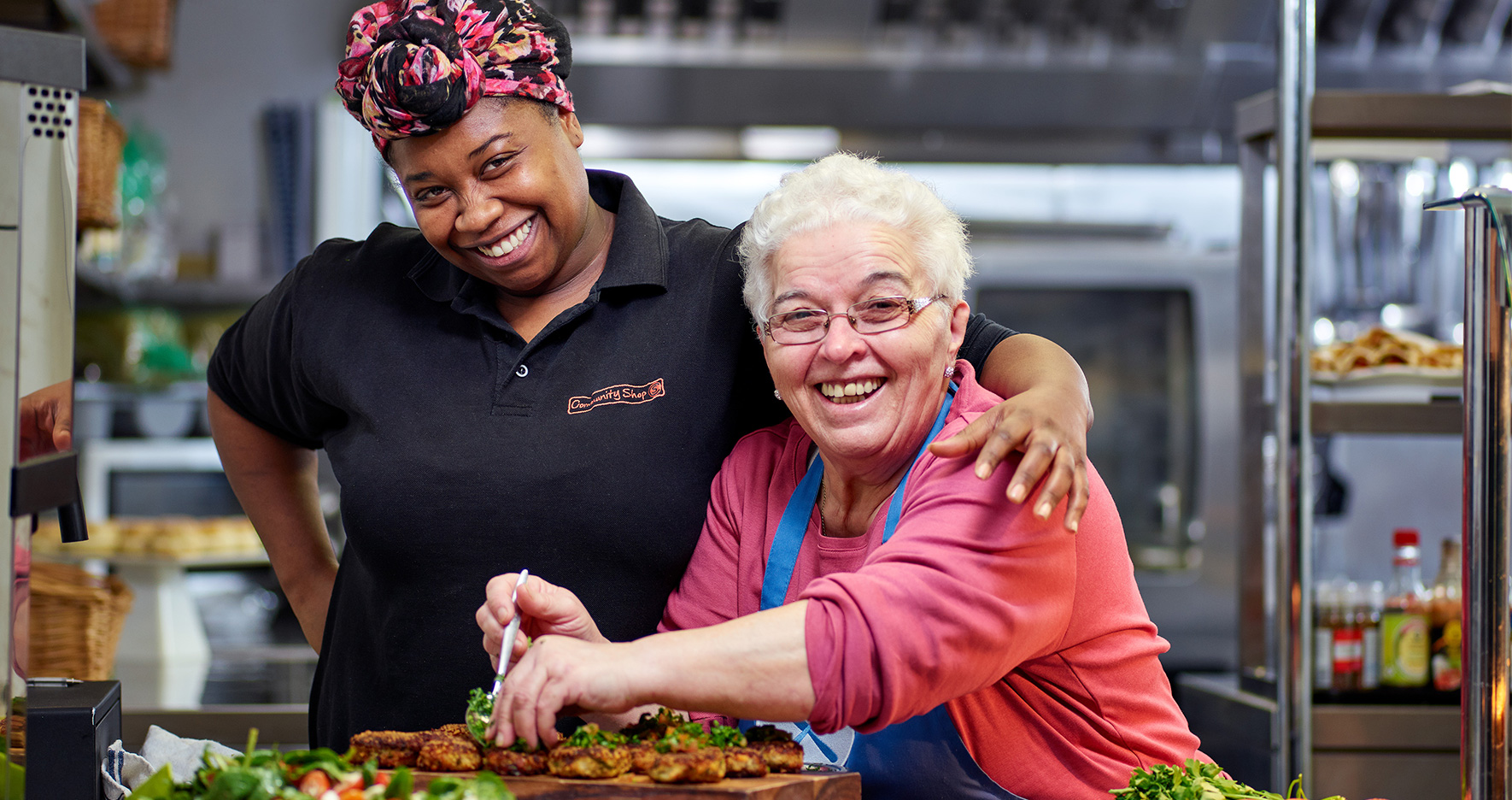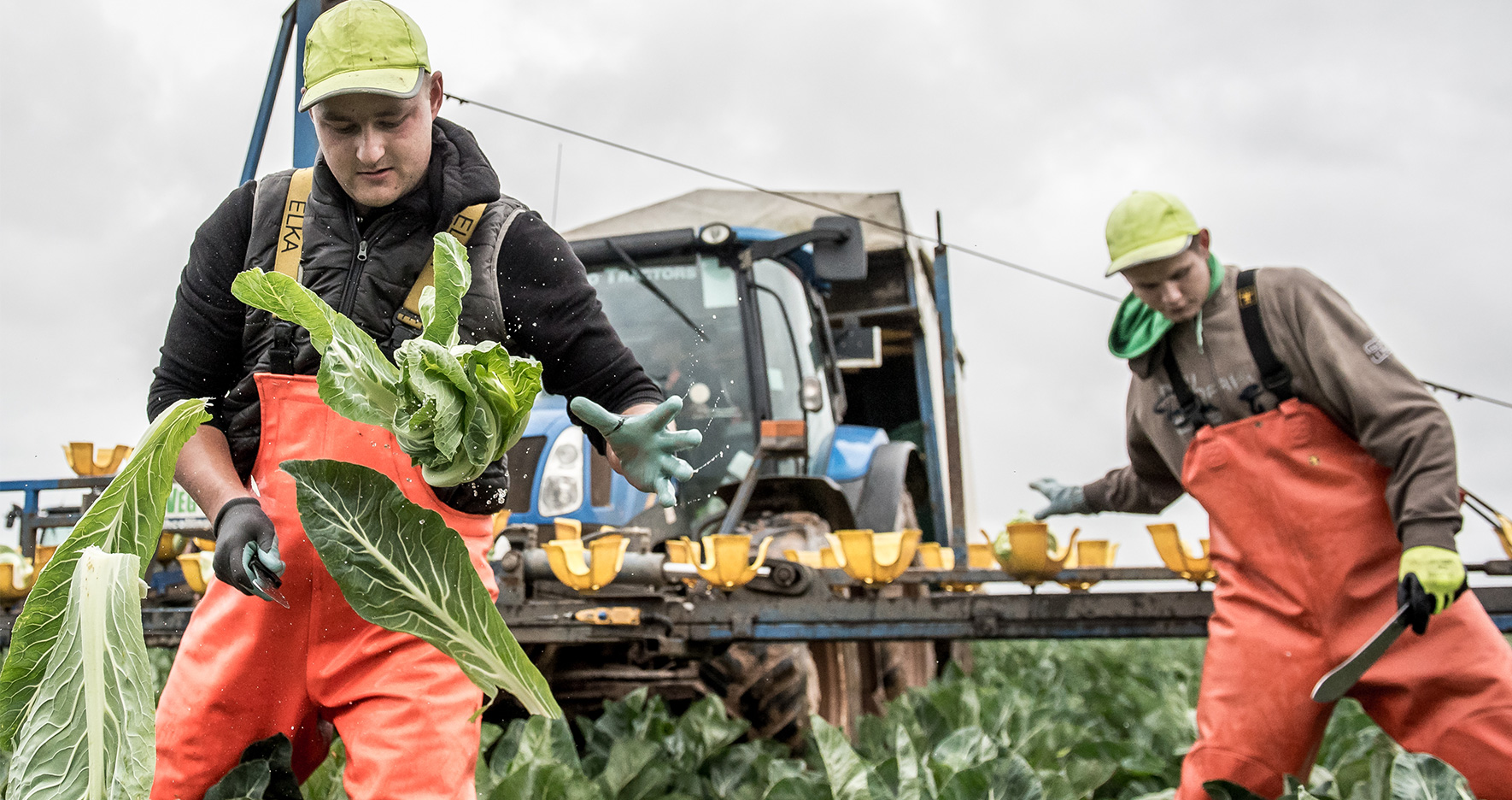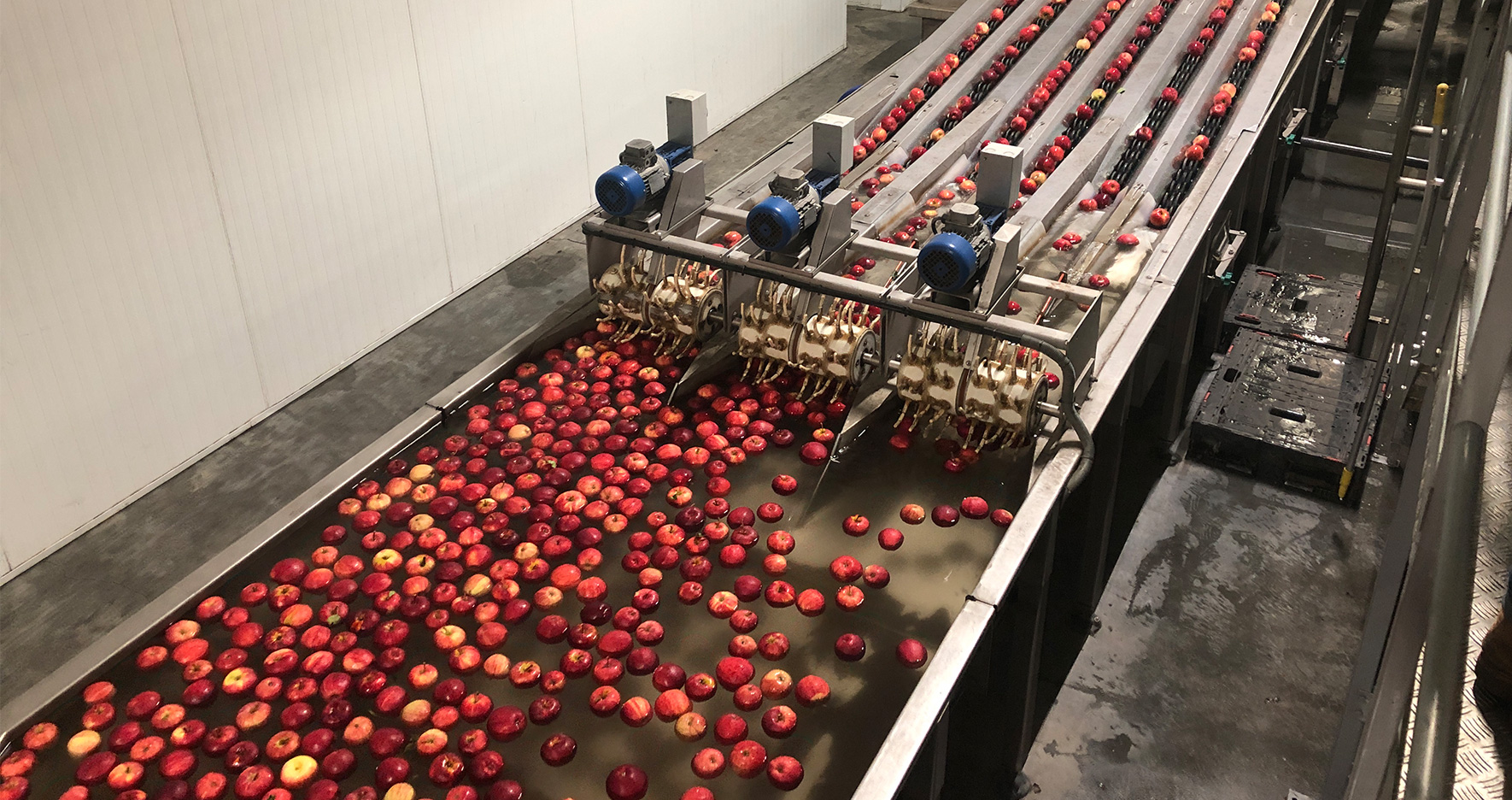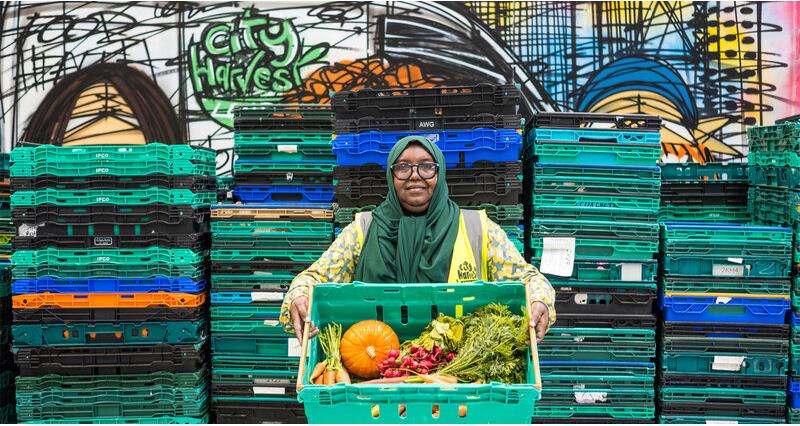A not-for-profit organisation based near Barnsley could give farmers a new market for food that misses specification, a boost to their net zero credentials and offer the chance to some social good at the same time.
Several of the NFU sector teams have held talks with the CSG (Company Shop Group) as it seeks to extend to the farm gate a formula that has proved a winner in repurposing waste and errors in food manufacturing and processing.
“Primary production has not been an area we have really concentrated on,” says CSG Client Relationships and Policy Adviser Sally Measom. “But from a climate, and a cost-of-living, perspective there’s never been a time when so much pressure is on to do things differently.”
An NFU delegation visited the group’s depot and headquarters to find out more about the work and the possible opportunities for farmers.
It heard how our just-in-time supply chains are logistical marvels, when they work. But when they don’t, it leads to one of the most commercially and environmentally-damaging things a food business can do – create waste.
CSG, though, thinks many of the problems caused by kinks in the food supply chain can be offset through redistribution.
“We say that surplus is inevitable, but waste isn’t,” Sally adds.
This repurposing of food chain waste is on the up and in 2021 saw a 16% increase in surplus food redistribution in the UK via charitable and commercial outlets, amounting to the equivalent of 253 million meals.
Setting up shop
It’s an area CSG has been involved in for more than 50 years, however, ever since the days when supply chain food waste was “a secret that wasn’t talked about”, in the words of Sally Measom.
Company Shop stats:
In 2021, Company Shop:
- Helped its members to collectively save more than £7.5m, supporting over 20,000 households
- Engaged 8,158 members through Community Hub activities and sessions
- Redistributed the equivalent of three million meals' worth of surplus food that would otherwise have gone to waste.
She told how John Marren, a former corner shop proprietor in Barnsley, saw opportunity in this uncomfortable reality.
John noted the practice of many food factories and manufacturers of offering products at knock-down prices to their staff that, while sound, would otherwise go to waste, and he wondered if this might be done at scale.
Could he take the wider supply chain’s over-runs, forecasting errors, the slightly out-of-spec or test products, the out-of-kilter seasonal stock, the labelling errors, or simply the short-dated products that weren’t going to make the stores with enough shelf life, and wrangle them into a new type of shop?
When the delegation of NFU staff stood in one of CSG’s two depots 50 years later, it was clear that the answer was ‘yes’. And then some.
117083,117084,117085,117086,117087
The scale here is impressive and the Tankersley site was bustling with activity. CSG diverted more than 98 million items away from landfill sites in 2021, including putting 34,590 tonnes of surplus food onto needy plates.
“There was a bit of challenge with the retailers at first, because we’re effectively saying ‘can we have your brand?’ Sally adds. “And we do sell quite a lot of it in their retail packaging. That was a risk to them, and we had to make sure it was minimised.”
The key was to create one of the most traceable of supply chains. At what are now 15 stores, from Southampton to Edinburgh, Company Shop sells only to a membership comprising food industry workers, emergency services employees and most key workers.
All customers swipe in and out with a dedicated card. “We know who our customers are and what they’ve bought, and, given what we sell, that traceability has been critical to getting the supermarkets on board,” Sally added.
M&S was the first major retailer to sign up 25 years ago and the group now has relationships with all the big supermarkets, including the discounters.
Suppliers get a commercial return, or the opportunity to donate surplus for social good and part of their Corporate Social Responsibility work (more of that later), or a bit of both, and the shoppers get an ever-changing smorgasbord of bargains – all sold at less than 50% of the recommended retail price.
On the shop floor
Company Shops look much like any other large mid-range supermarket, albeit one where a constantly shifting stock makes following a list a bit more difficult.
Sally added: “It’s like a normal shop, laid out a format you are familiar with. It’s no less of an experience, but with plenty of surplus surprises and people shop with an open mind.”
Do so, and there are plenty of delights, including branded soup that was a touch too thick and a premium ‘not just any chicken’ at a remarkable price.
There are some repackaged nuggets diverted away from the golden arches and desserts that came in a few grams too light at manufacture and which have since been relabelled. Recent stock also included a bumper 20 tonnes of pork that just missed the retailer’s specifications.
Company Shop is, for many, a perk of working in the food industry, but for others it also serves a different purpose.
The group’s Sue Patterson said: “We’ve got six million people in work and in food poverty.
“At a time when there’s a lot of talk about the choice between heating and eating, Company Shop is helping many food business employees with food insecurity.”
Social good
It’s doing more that, however. The other arm of the group is an award-winning social enterprise, comprising ten smaller Community Shops in some of the most deprived parts of the country.
Again, deeply discounted bargains abound, but ‘shop’ isn’t really the right word. In areas where the decline of industries like mining sometimes led to three jobless generations, and where food poverty might be as real as mums filling their bellies with toilet paper so that their children can eat properly (a story heard by the NFU on a previous visit), Community Shops can be lifelines. But they are also places where a range of extra services steady ships, help to build confidence and unlock futures.
Sites like the one at Knottingley, about 40 minutes from the depot, include kitchens using surplus stock to serve affordable meals, with children eating for free. Chefs work to show members how to make the most of the food on the shop floor and breakout rooms host ‘Community Hub’ learning and development programmes that are making a genuine, evidenced difference.
The skills and topics offered are dictated by the needs of the specific communities, but often including health and wellbeing, legal and financial advice and employment coaching.
“Community Shop is a hand up, not a handout,” Sue noted.
Sophie's story
Shop user Sophie* was a new single mum surviving on £20 a week when she first came to Community Shop and began engaging with the services, using the community kitchen, and cooking there with her son.
“Week by week my confidence grew, and my mental and physical health improved,” she said.
“I felt valued, because Community Shop helped me to focus on what was strong in my life, not what was wrong. Not having sufficient food isn’t the problem, it is the tip of an iceberg.
“As a new single mum it is easy to feel disorientated, to feel that you have no options. You do, but sometimes you need people to believe that before you do.”
*Not her real name
Inaction
Again, there is a membership structure and, here, a limit on the number of members at any one time to help to ensure that the customers, all of whom are local and on means-tested benefits, can receive sustained support.
Company Shop Group Social Impact and Development Manager Joseph Chow talks of “deep intervention”, adding that, on average, most members will buy at a Community Shop for a year, often before moving into education or employment and more conventional outlets.
“We’re very good at getting people into employment because we do it slowly, on their terms, and it’s their choice to engage, ” Joe said.
He added: “Nobody here wants to go and queue at a food bank, because the only trade you have is your dignity.
“Community Shop is about building resilience. If you lack confidence, you’ve not had a job and you are struggling to feed your kids you are in a pretty low place. Trying to rewrite the story from there is really difficult.”
Could you work with Company Shop?
As it looks to divert more surplus goods, the Company Shop Group is enhancing its focus on the farm gate to identify new ways of capturing produce that may currently go to waste. This could include things like wonky veg or out-of-spec produce, surplus in bulk at the farm or pack house, or at harvest in the field.
The NFU is working with the business to identify where opportunities for both farmers and the group might lie. The group can offer farmers a financial return for their surplus, a social return by donating it to help people through Community Shop, or a blend of both, with the group’s technical team ensuring products are compliant, and ready for redistribution.
Anyone looking to learn more about donating or selling surplus stock should contact surplus@companyshopgroup.co.uk or call 0800 211 84 84.
